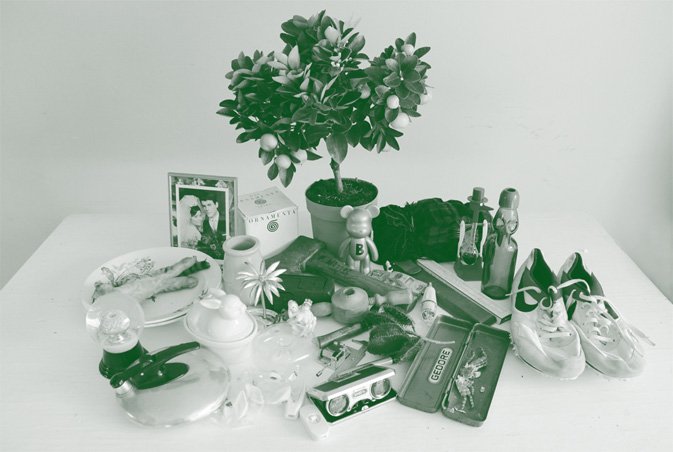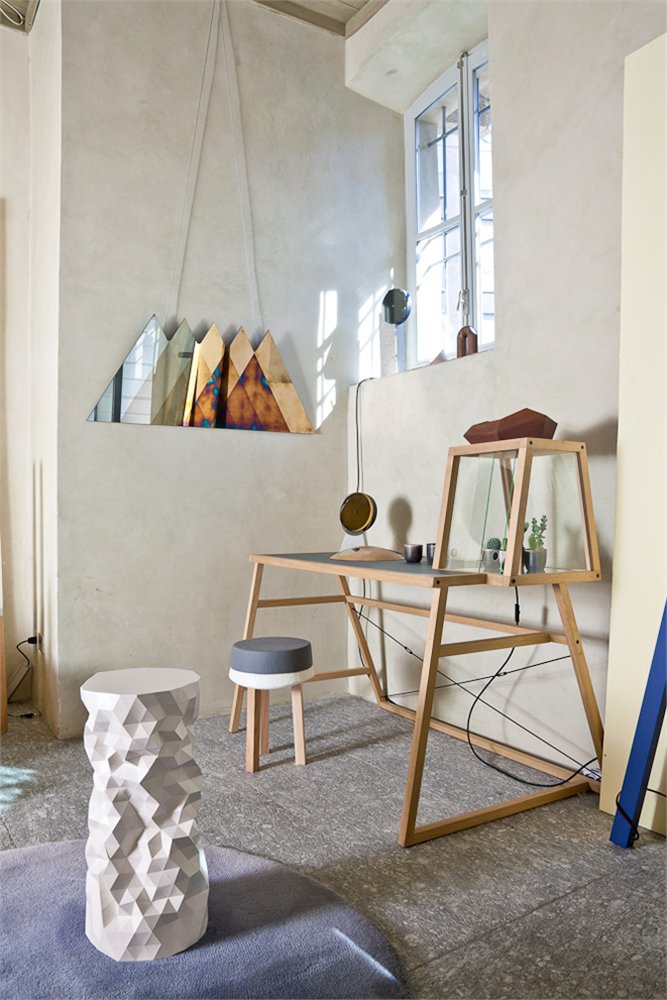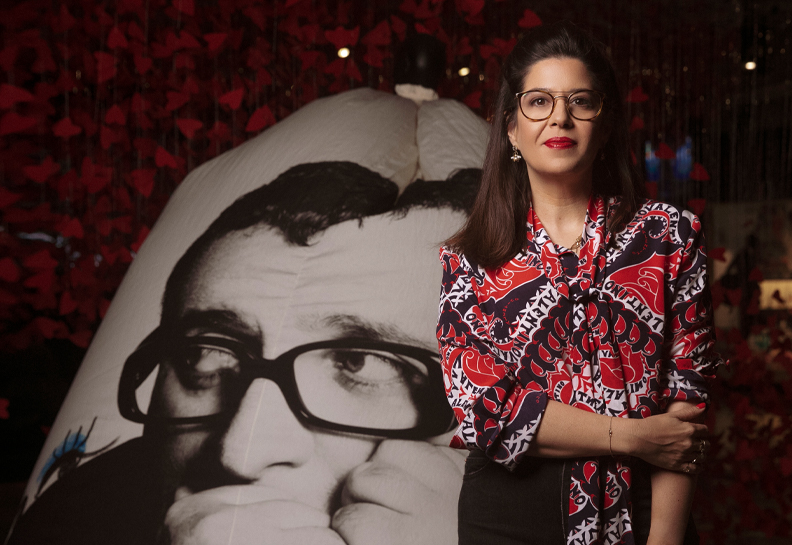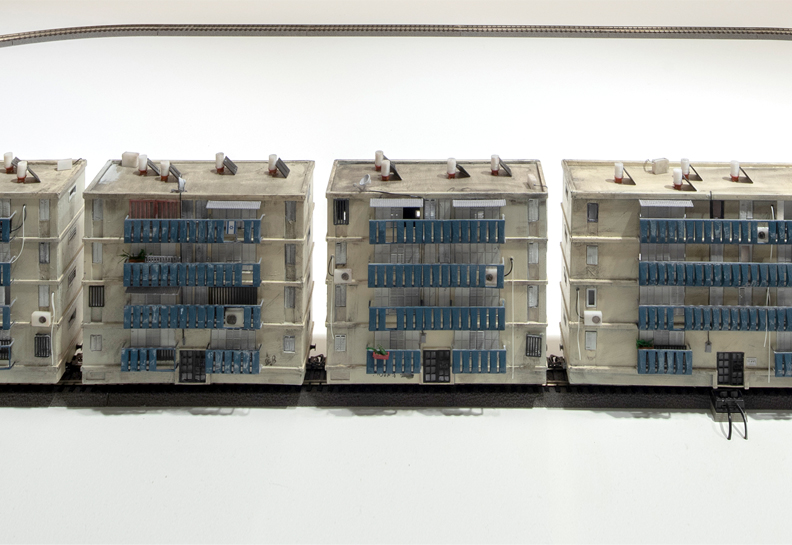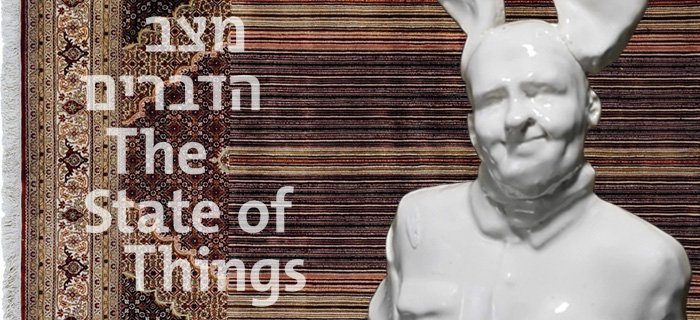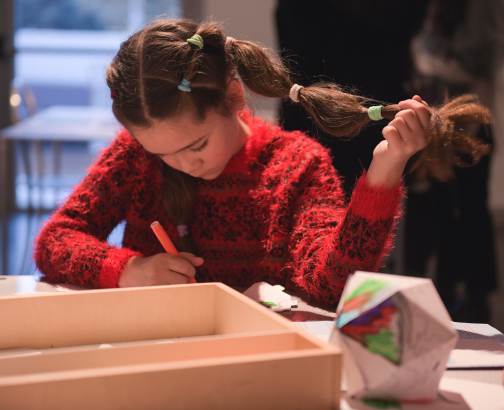An interview with Polish-born initiator, curator, and designer Matylda Krzykowski whose work, was exhibited in the “Common Roots” exhibition.
An interview with Polish-born initiator, curator, and designer Matylda Krzykowski whose work, which was exhibited in the “Common Roots” exhibition, might seem unrefined, but reflects a whole world of childhood memories.
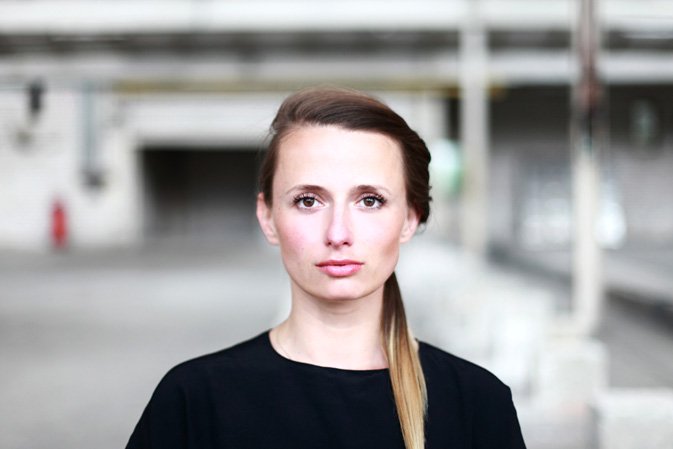
“Daddy Would Be Proud” is a series of wood-sculpted tools haphazardly arranged in a simple wooden box, and look as though they were carved by an unskilled hand, as if hewn from the distant memory of a child. The piece belongs to the exhibition’s “Arts and Crafts” category that deals with crafts such as carpentry and weaving that have been handed down the generations from father to son and from mother to daughter (in this instance, from father to daughter). Even in Central Europe these crafts are dying out today due to the lack of interest displayed by the younger generation. It is actually post-industrial contemporary designers who consider them a source of inspiration and are preserving traditional skills that are no longer valued. Matylda Krzykowski is one of these designers, but she is not only preserving the vanishing skill of wood sculpting, she seemingly carves her father’s tools from her memory, early memories that connect her to a distant country.
Why tools?This piece is very personal. You can see the limitations of the craft in it, but they are my limitations. When I was approached before the exhibition in Milan in 2011 and asked to create something limited in size that could be easily transported, I thought about woodwork. At around the same time I visited one of my teachers and saw wooden clothespins that were about thirty years old. All this connected with a memory I had of visiting my homeland, Poland. When I was little and visited Poland, I liked watching the craftspeople in the market who made wooden toys for a living. This piece is a tribute to them too.
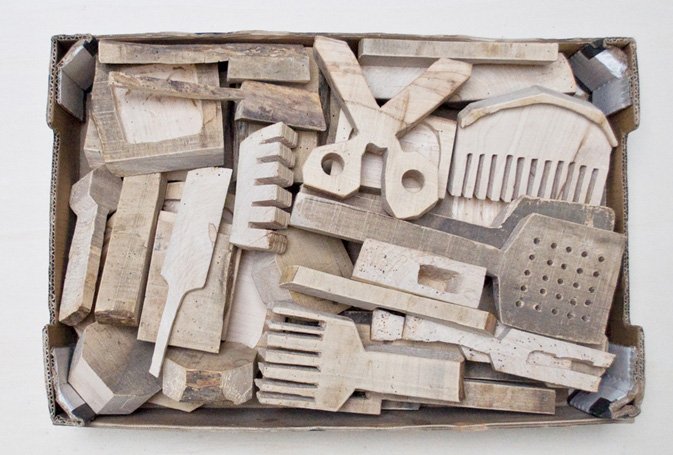
Most of your life you’ve lived in other places, but it seems that you dream in Polish…Yes, my strongest feelings are for Poland, much stronger than for Germany or Holland. Here in Israel too, I’ve met people who are connected to the places they came from. When I think about what home is, my romantic feelings are Polish. I named my piece “Daddy Would Be Proud” because my father loved doing crafts. There’s a lot of imperfection in this piece, and I know that someone who can be proud of a child’s imperfect work is a parent. I thought that in the future I’d create another series using CNC – a second “Daddy Would Be Proud” series, but a perfect one this time.
If you’d stayed in Poland, would your career have been different?Maybe the fact that I move so much stems from an identity crisis. When you grow up like this, you’re always asking yourself what home is. I’m a stranger wherever I go. Maybe it’s expressed in the fact that I’m interested not only in my own work but in that of others as well. Even when I started studying I was already interested in the work of others. I liked giving feedback to others in my class, to give them direction. The question of home preoccupies me. A few days ago I concluded my lecture at Bezalel with the metaphor of a restaurant in Poland called Restauracja Europa – anything can be home.
You studied design, but most of the time you don’t actually design…I’m an initiator; I like to create interesting places. I define myself as an initiator, someone who engages in design mainly as a communication tool. That’s how it is in the blog I write, in which I invite designers to take part in drawn interviews, and that’s how it is with Depot Basel, which I co-founded. The idea of a group of people/designers from different fields coming together to brainstorm, and in less than three days create an entire series of objects, really appealed to me.
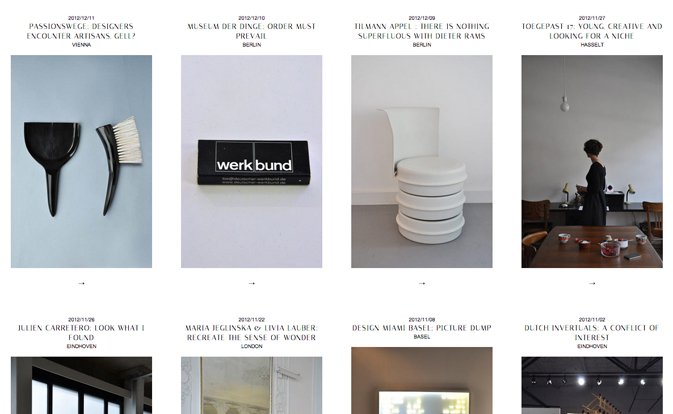
What’s the idea behind Depot Basel?Depot Basel is a temporary contemporary design space. The idea is to create everything ourselves and adapt it to the space. The space is wonderful – 800 square meters in one of Basel’s developing areas, a grain silo that’s been converted into an art space. We invited nine designers, who in a five-day workshop created all the furniture for the space. Furniture that’s specifically suited to the space was designed through the dialogue between them. Then we opened an exhibition in the space and the furniture remained there for future use.
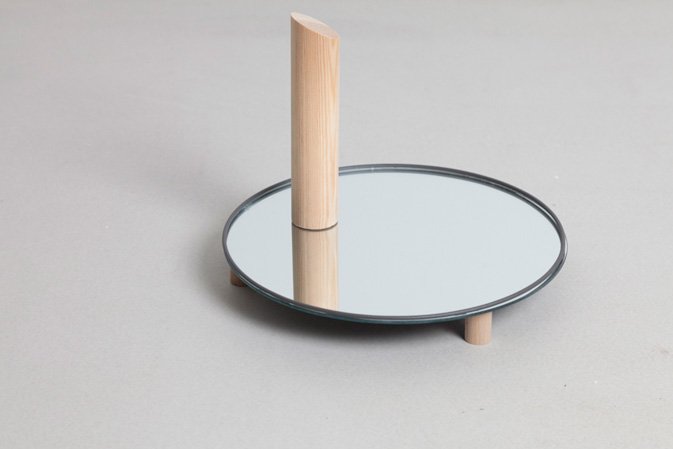
And you’re one of the founders…Yes, the founding team includes designers, a journalist, a design theorist, and an economist, who together incorporate theory and practice.
How was the idea conceived?I started a blog when I was still a student and visited a lot of designers in their studios. That’s the only way ideas come up. I like working with designers from different fields. I like the power of the connections that are made in collaborations. That’s the beauty of creating. This kind of place was really needed in Switzerland, a country where there are hardly any independent places. There are galleries or fairs, and there was a need for a different kind of space.
You were also involved in the exhibition “The Machine”, which is currently touring all over Europe.Yes, I’m the production manager. The exhibition moved from Belgium to Holland, and the idea was to investigate local designers wherever the exhibition goes, so the context changes from one place to another. In Holland there were interesting projects by YUYA, Karolina, and Christian Fiebig.
Do you still design sometimes?I don’t like the word ‘design’. I like the German word ‘Gestaltung’ – shaping, creating. It’s a word that can describe industrial design or visual culture. ‘Design’ has a bad connotation – the word has no boundaries. ‘Gestaltung’ is a warmer word. Something you can do yourself.
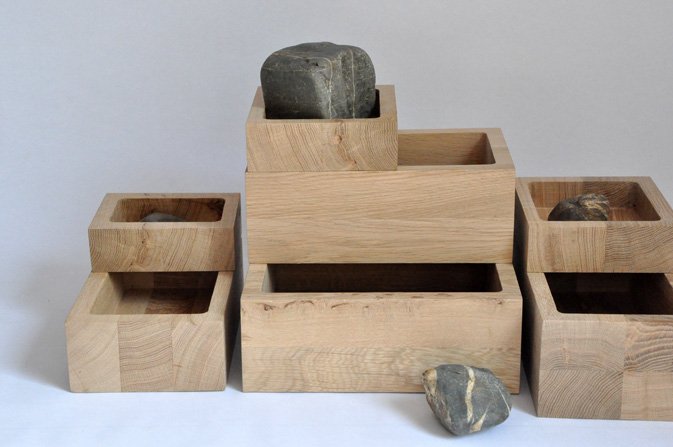
So if you’re not a designer, what are you, a curator?There’s been a lot of talk in Milan in recent years about a big crisis in the designer’s role, but nobody shows it. In general, people are making themselves overly important. A lot of designers are turning themselves into curators; they get together with a few friends and create small exhibitions in order to show their work. But curating is something else. I, for example, have a problem saying I’m a curator. It’s like saying I’m a journalist because I’ve got a blog. I think I mainly engage in education. People often lack a proven track record, and curating is a term that’s used all too easily. I think you have to earn it.
